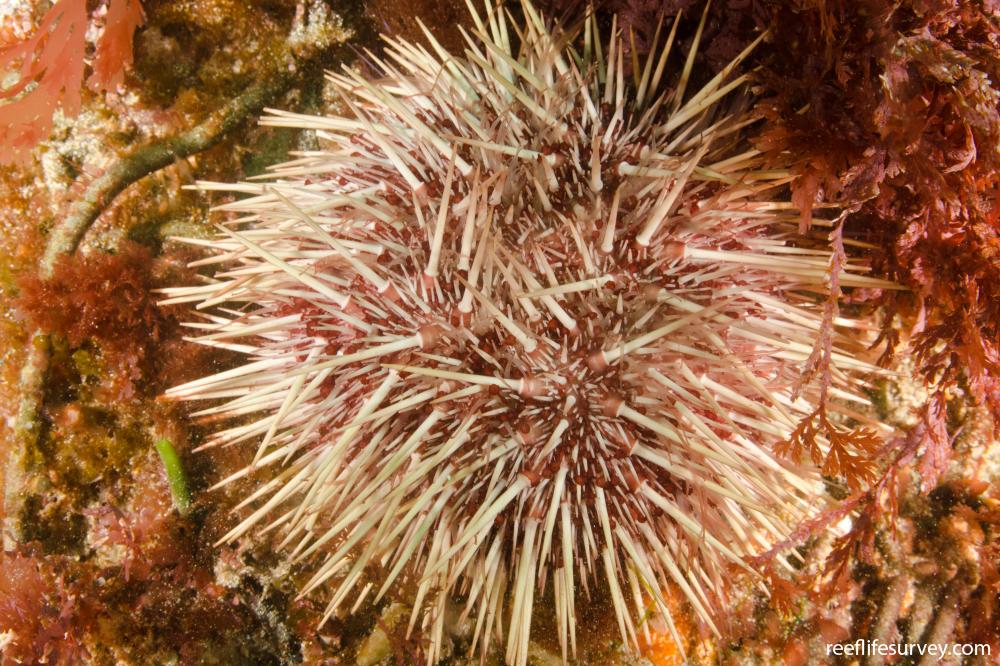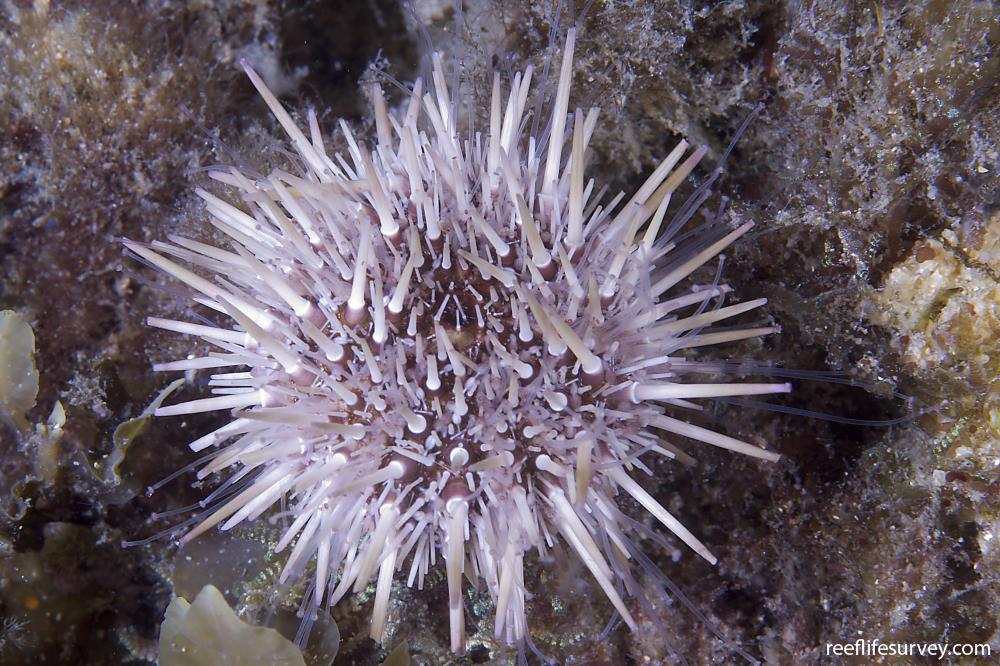Heliocidaris erythrogramma
Short-spined urchinSimilar Species
Same Genus
Distribution
Temperate Australasia
Description
Short spined sea urchins are highly variable species that range in base and spine colouration (including white, and purple combinations) and spine size and shape, even between individuals at the same location. Western Australian individuals often have shorter, stockier spines of similar length, sometimes resembling the widespread tropical species Echinometra mathaei. Very common, often the most abundant urchin species within its range, except on the east coast where it occurs with Centrostephanus rodgersii.
Information
Max Size: 9 cm
Sea Temperature Range: 10.3-23.3°C
Depth: 0-35m
Habitat Generalization Index: N/A
Also referred to as the SGI (Species Generalisation Index), this describes the habitat niche breadth of the species. Species with values less than 15 are found in a relatively narrow range of reef habitat types (specialists), while those over 25 may be found on most hard substrates within their range (generalists). Learn more here.
Conservation and Rarity
IUCN Status: Not Evaluated
Occurrence: Widespread (65.5% of sites)
Occurrence describes how often the species is found on surveys within its distribution. It is calculated as the % of reef sites surveyed by RLS divers across all the ecoregions in which the species has been observed
Abundance: Many (37 per transect)
Abundance is calculated as the average number of individuals recorded per RLS transect, where present.
Edit by: GJ Edgar. 2008. Australian Marine Life. New Holland, Sydney























